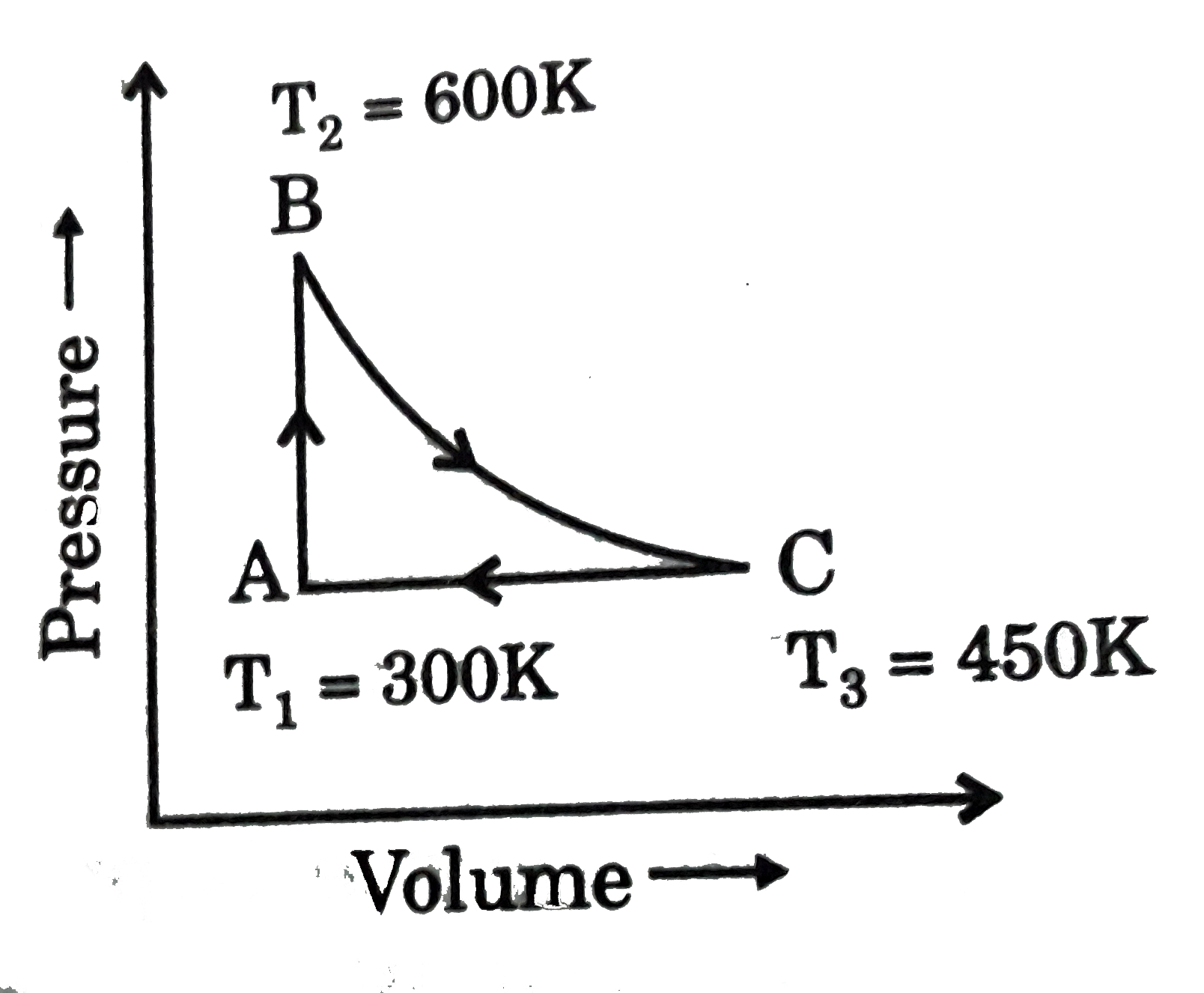The following reactions carried in open vessel. The reaction for which ΔH=ΔU will be
PCl5(g)→PCl3(g)+Cl2(g)
2CO(g)+O2(g)→2CO2(g)
N2(g)+3H2(g)→2NH3(g)
H2(g)+I2(g)→2HI(g)
The correct Answer is:D
To determine which reaction has ΔH = ΔU, we need to analyze the change in the number of moles of gaseous products and reactants (ΔNg) for each reaction. The relationship between ΔH and ΔU is given by the equation:
ΔH=ΔU+ΔNgRT
Where:
- ΔH = change in enthalpy
- ΔU = change in internal energy
- ΔNg = N2 - N1 (the difference between the number of moles of gaseous products and gaseous reactants)
- R = universal gas constant
- T = temperature in Kelvin
For ΔH to equal ΔU, ΔNg must be zero (ΔNg = 0).
Now, let’s analyze each reaction step by step:
Step 1: Analyze the First Reaction
Reaction: PCl5(g) ⇌ PCl3(g) + Cl2(g)
- Products: 1 mole of PCl3 + 1 mole of Cl2 = 2 moles
- Reactants: 1 mole of PCl5 = 1 mole
ΔNg=Nproducts−Nreactants=2−1=1
Conclusion: ΔNg ≠ 0, so ΔH ≠ ΔU.
Step 2: Analyze the Second Reaction
Reaction: 2 CO(g) + O2(g) → 2 CO2(g)
- Products: 2 moles of CO2 = 2 moles
- Reactants: 2 moles of CO + 1 mole of O2 = 3 moles
ΔNg=2−3=−1
Conclusion: ΔNg ≠ 0, so ΔH ≠ ΔU.
Step 3: Analyze the Third Reaction
Reaction: N2(g) + 3 H2(g) → 2 NH3(g)
- Products: 2 moles of NH3 = 2 moles
- Reactants: 1 mole of N2 + 3 moles of H2 = 4 moles
ΔNg=2−4=−2
Conclusion: ΔNg ≠ 0, so ΔH ≠ ΔU.
Step 4: Analyze the Fourth Reaction
Reaction: H2(g) + I2(g) ⇌ 2 HI(g)
- Products: 2 moles of HI = 2 moles
- Reactants: 1 mole of H2 + 1 mole of I2 = 2 moles
ΔNg=2−2=0
Conclusion: ΔNg = 0, so ΔH = ΔU.
Final Answer:
The reaction for which ΔH = ΔU is the fourth reaction: H2(g) + I2(g) ⇌ 2 HI(g).
---
- ΔH = change in enthalpy
- ΔU = change in internal energy
- ΔNg = N2 - N1 (the difference between the number of moles of gaseous products and gaseous reactants)
- R = universal gas constant
- T = temperature in Kelvin
Reaction: PCl5(g) ⇌ PCl3(g) + Cl2(g)
- Reactants: 1 mole of PCl5 = 1 mole
Reaction: 2 CO(g) + O2(g) → 2 CO2(g)
- Reactants: 2 moles of CO + 1 mole of O2 = 3 moles
Reaction: N2(g) + 3 H2(g) → 2 NH3(g)
- Reactants: 1 mole of N2 + 3 moles of H2 = 4 moles
Reaction: H2(g) + I2(g) ⇌ 2 HI(g)
- Reactants: 1 mole of H2 + 1 mole of I2 = 2 moles
The reaction for which ΔH = ΔU is the fourth reaction: H2(g) + I2(g) ⇌ 2 HI(g).
Topper's Solved these Questions
- THERMODYNAMICSBook:AAKASH INSTITUTE ENGLISHChapter:THERMODYNAMICSExercise:ASSIGNMENT (Section - A) Objective Type Questions
Explore 55 Videos
- THERMODYNAMICSBook:AAKASH INSTITUTE ENGLISHChapter:THERMODYNAMICSExercise:ASSIGNMENT (Section - B) Objective Type Questions
Explore 35 Videos
- THERMODYNAMICSBook:AAKASH INSTITUTE ENGLISHChapter:THERMODYNAMICSExercise:SECTION-J
Explore 7 Videos
- THE SOLID STATE Book:AAKASH INSTITUTE ENGLISHChapter:THE SOLID STATE Exercise:Assignment (SECTION - D) (ASSERTION-REASON TYPE QUESTION)
Explore 20 Videos
Similar Questions
Tea placed in thermos flask is an example of
View SolutionLet (Cv)and(Cp) denote the molar heat capacities of an ideal gas at constant volume and constant pressure respectively . Which of the following is a universal constant?
View SolutionA heat engine carries one mole of an ideal monoatomic gas around the cycle as shown in the figure, the amount of heat added in the process AB and heat removed in the process CA are :

View SolutionA : In NaCl structure, the interionic distance is a/2 (a = Unit cell edge length).
R : NaCl forms face centered cubic unit cell.
View SolutionWhich of the following reaction has Delta H = Delta U ?
View SolutionFor which reaction Delta H = Delta U ?
View SolutionIn which of the following reactions will Delta U be equal to Delta H ?
View SolutionIn which of the following reactions will Delta U be equal to Delta H ?
View SolutionIn which of the following reactions, ΔH is greater than ΔU ?
View Solutionनिम्न में से किस अभिक्रिया के लिए ΔE=ΔH है
View SolutionThe following reactions carried in open vessel. The reaction for which Delta H = Delta U will be
View SolutionFor which of the following reactions, Delta H is equal to Delta U ?
View SolutionFor which of the following reactions, ΔH is greater than ΔU ?
View SolutionAssume each reaction is carried out in an open container. For which reaction will be Delta H = Delta U ?
View Solutionअभिक्रिया का चयन कीजिए जिसमें ΔH,ΔU के बराबर नहीं होता है
View Solutionनिम्न में से किस अभिक्रिया के लिए ΔE=ΔH है
View Solution
